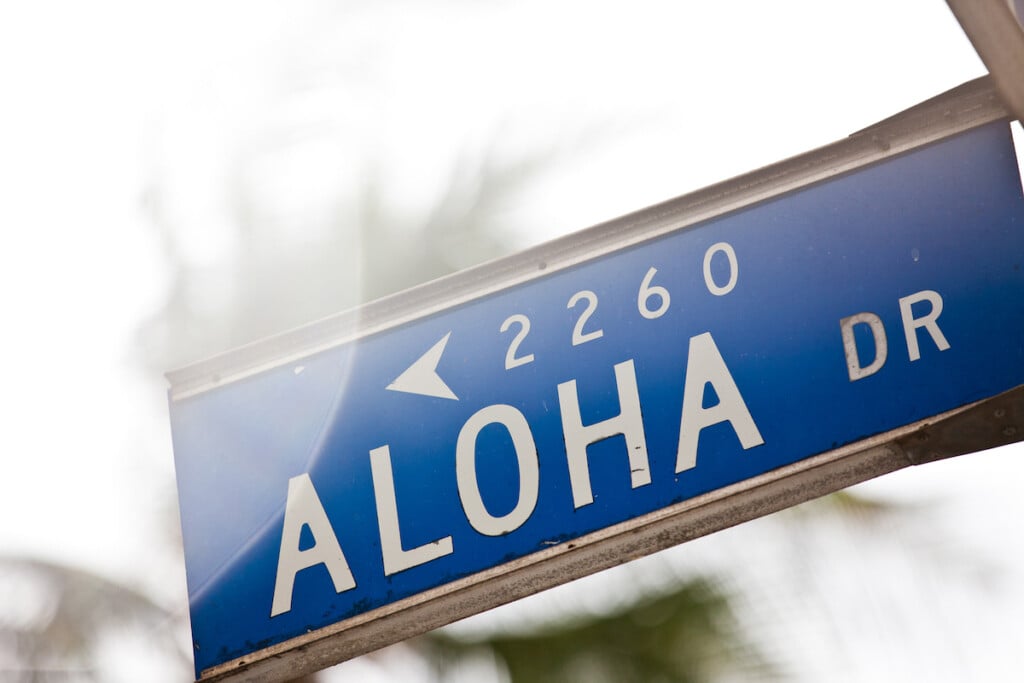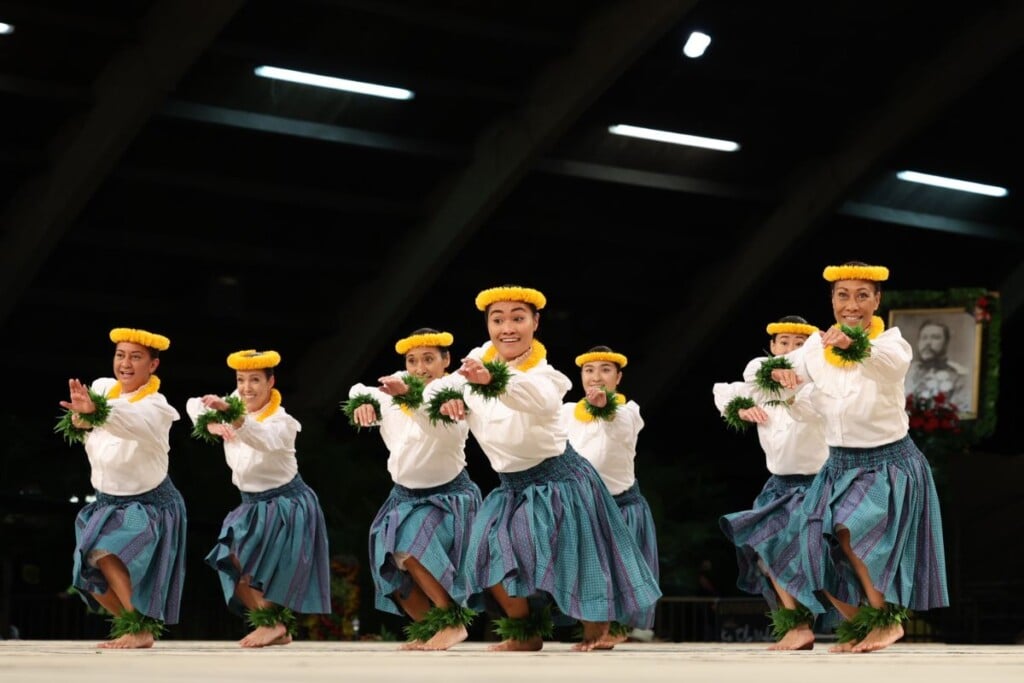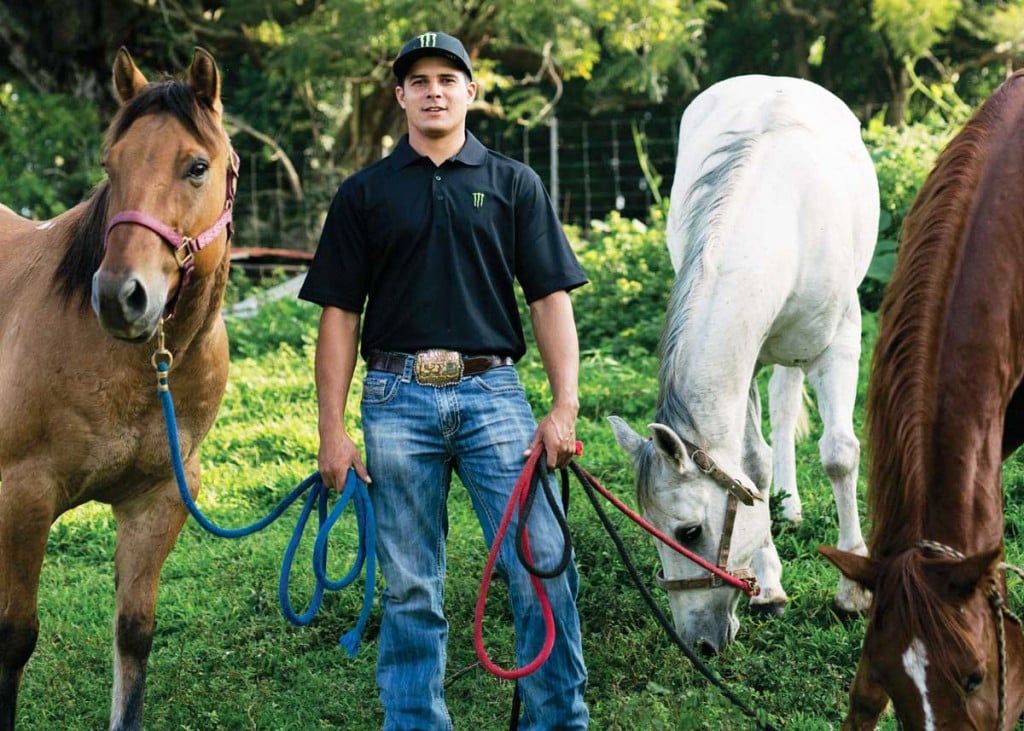29 Hawaiian Words and Phrases Travelers to Hawaiʻi Should Know
Learn these before your next trip to the Islands.

Hawaiʻi is the only U.S. state with two officials languages—English and ʻōlelo Hawaiʻi, or Hawaiian.
The language had been banned in the public education system in 1896; Hawaiʻi was annexed by the U.S. two years later. The language was on the verge of vanishing.
Then, in 1978 the state constitution gave the Hawaiian language the official designation, while ensuring that public schools promote the study of Hawaiian culture, history and language. Less than a decade later, the first Hawaiian language immersion school—Pūnana Leo preschool on Kauaʻi—opened.
Today, you’ll see and hear ʻōlelo Hawaiʻi everywhere: on street signs, in travel guides, on the radio. Even Zippy’s, the beloved Hawaiʻi-based restaurant chain, has a version of its menu entirely in Hawaiian.
So it makes sense, then, if you’re traveling to the Islands to know a few key words and phrases.
Here are some the Hawaiʻi Tourism Authority recommends you get familiar with:
Aloha
You can say this to mean hello, goodbye and love.
Aloha kakahiaka
Pronounced a-lo-ha kah-kah-hee-yah-kah. Good morning.
Aloha ʻauinalā
Pronounced a-loh-ha ah-wee-na-lah. Good afternoon.
Aloha ahiahi
Pronounced a-loh-ha a-hee-yah-hee. Good evening.
ʻAʻole pilikia
Pronounced ah-oh-leh pee-lee-kee-yah. Use this phrase if someone thanks you. It means you’re welcome.
A hui hou
Pronounced ah-hoo-wee-ho-oo-uu. Until we meet again.
E Komo Mai
Pronounced eh-ko-mo-my. Welcome, enter.
Heiau
Pronounced hey-ah-oo. Hawaiian temple. These are sacred places and should be visited with reverence and respect.
Hele
Pronounced hey-ley. To go.

Honu means turtle in the Hawaiian language.
Photo: Getty Images/ShaneMyersPhoto
Honu
Pronounced ho-new. Turtle. Hawaiian green sea turtles. They are protected in Hawaiʻi, and you must be at least 10 feet (3 meters) on land and in water to view them safely.
Holoholo
Pronounced ho-low-ho-low. To go for a walk, stroll, to travel around.
Imu
Pronounced ee-moo. Underground oven. You’ll often see this at a lūʻau. It’s where the pig is cooked.
Kāne
Pronounced kah-neh. Man.
Kōkua
Pronounced ko-koo-ah. To help or assist. You might see a sign that says, “Please kōkua.”
Kuleana
Pronounced koo-lee-ah-nah. Responsibility or privilege.
Lānai
Pronounced la-nye. Porch or balcony. Your hotel room may have one. (Not to be confused with the island Lānaʻi.)

This is a flower lei.
Photo: Getty Images/AbElena
Lei
Pronounced lay. Flower, leaves, shells or feathers that are strung or intertwined together and given as a symbol of affection.
Loʻi
Pronounced low-ee. A taro patch, or an irrigated terrace used for growing taro.
Lūʻau
Pronounced loo-ah-oo. A Hawaiian feast, though the word lūʻau actually refers to the leaves of the taro plant.
Mahalo
Pronounced mah-hah-loh. Thank you. If you add nui (pronounced noo-ee) to it, it then means “thank you very much.”
Mālama
Pronounced mah-lah-mah. To take care of, preserve, protect.
Mauka
Pronounced mah-oo-kah. People use mauka as a directional term meaning “upland.”
Makai
Pronounced mah-ka-eye. Makai is the opposite of mauka, and it means “seaward.”
ʻOno
Pronounced oh-no. Tasty, delicious. Not to be confused with ono (without the ʻokina), which is a type of fish (wahoo).
ʻŌpala
Pronounced oh-pah-lah. Garbage or trash.
Pali
Pronounced pah-lee. Steep cliff, as in the Nāpali Coast on Kauaʻi.
Pūpū
Pronounced poo-poo. Appetizer.

This is a canoe, or waʻa.
Photo: Getty Images/Wildroze
Waʻa
Pronounced va-ah. Canoe.
Wahine
Pronounced vah-hee-neh. Woman. You might see this on a bathroom door.


